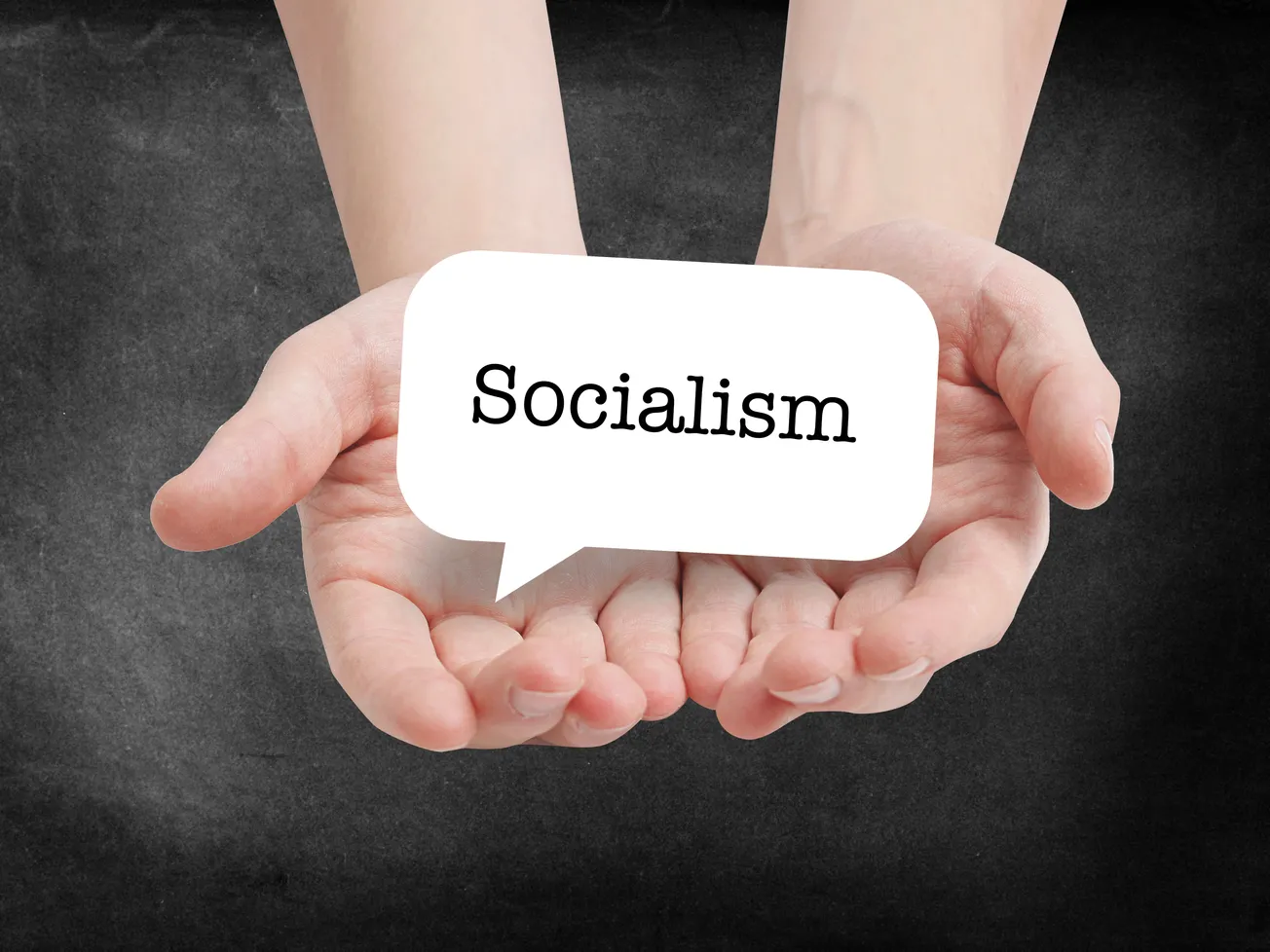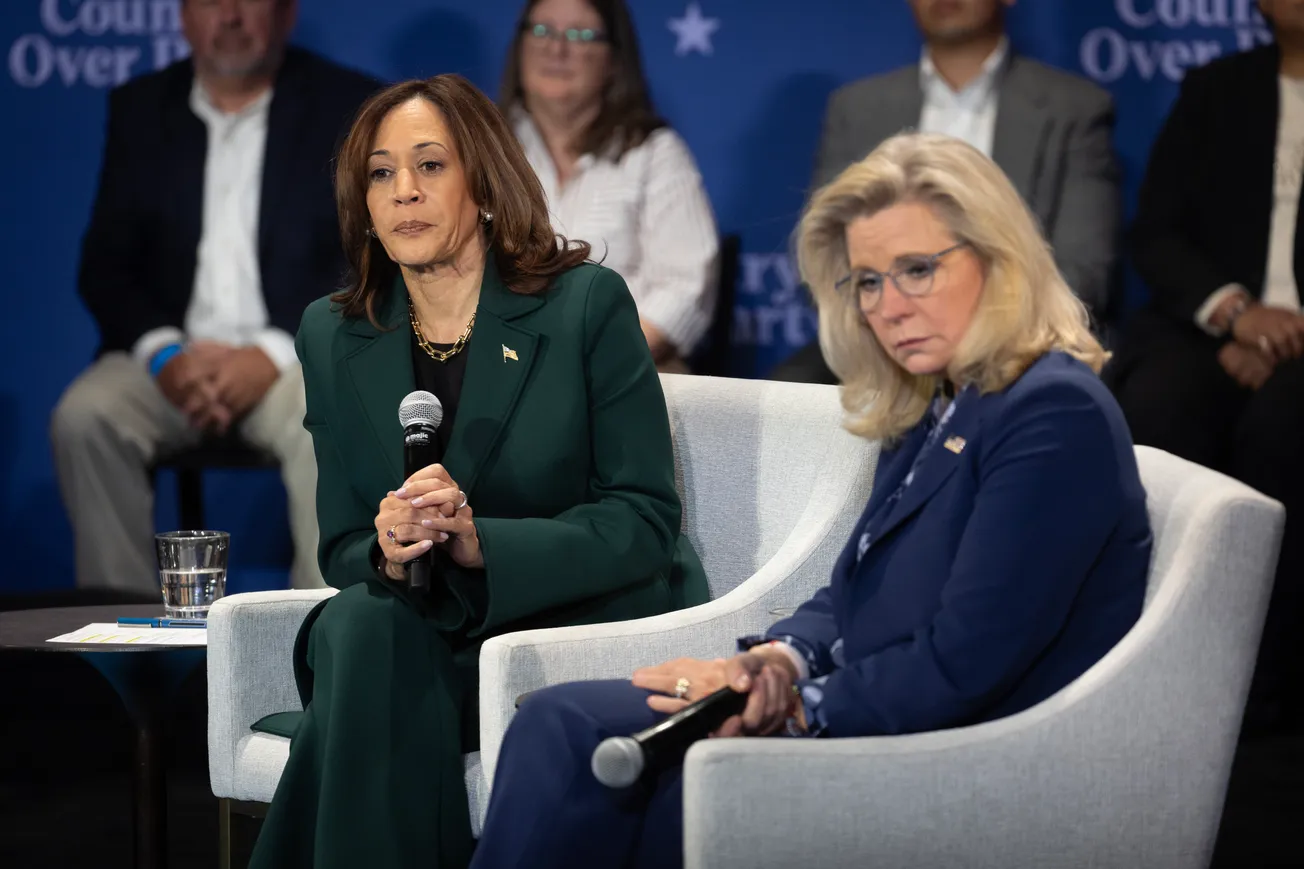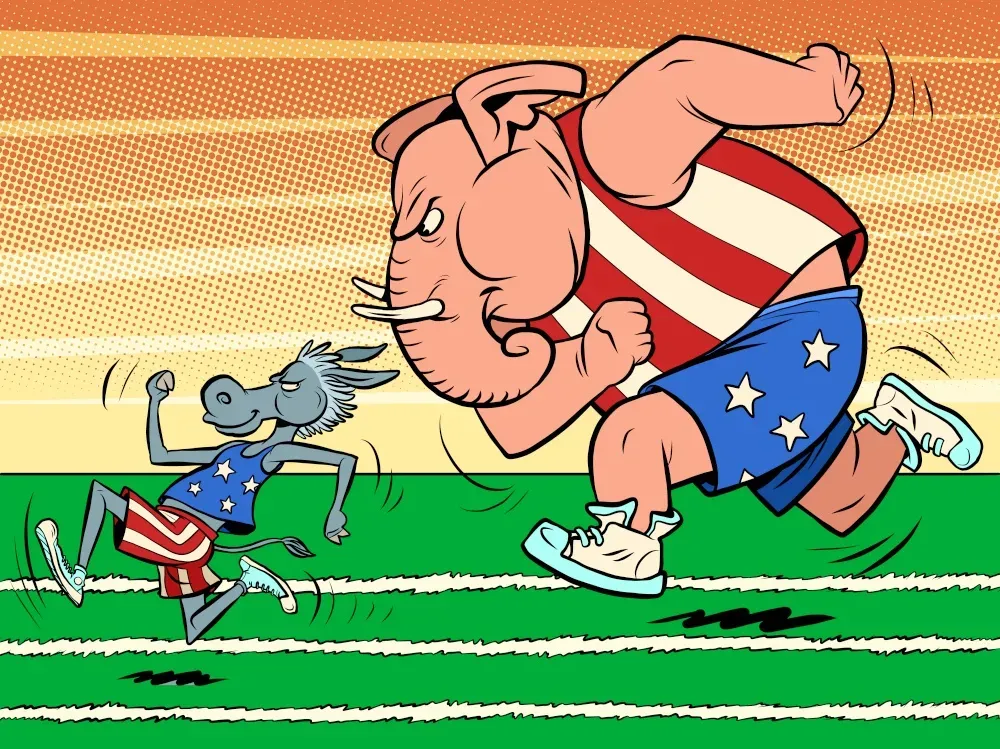In recent years, government in the U.S. has never been bigger, in terms of both spending and its power over individuals and the economy. Some have begun to openly wonder: Is the U.S. evolving into a socialist-style economy? And is that what Americans want? The latest I&I/TIPP Poll has answers.
Over the last three years, due to the COVID pandemic, government spending at all levels averaged just over 44% of GDP, the highest since World War II, when much of the economy was essentially socialized in order to boost war spending.
Today, a majority of Americans agree that the sudden, rapid growth from COVID-related spending and burgeoning top-down control over the domestic economy to address climate change have put U.S. on a path toward socialism.
This comes out of the latest I&I/TIPP Poll of 1,356 Americans across the country, taken online from Jan. 4-6. In it, we asked respondents whether they agreed or disagreed with the following simple statement: “The U.S. is evolving into a big government socialist state.”
The shocking answer: By 51% to 31%, Americans agreed the U.S. is moving toward socialism. Among the remainder, 18% said they were “unsure.” The poll has a margin of error of +/-2.8 percentage points.
Further broken down, of those who agreed, 20% said they did so “strongly,” while 31% said they agreed “somewhat.” For those who disagreed, just 15% disagreed strongly, while 16% said they “somewhat” disagreed.
While usually such politically sensitive questions show wide differences among the different political affiliations, that’s not exactly the case here.
A plurality of Democrats (42% “agreed,” 40% “disagreed”) believed with the majority of Republicans (68% to 18%) that America was moving toward socialism. Independents also agreed, 49% to 32%.
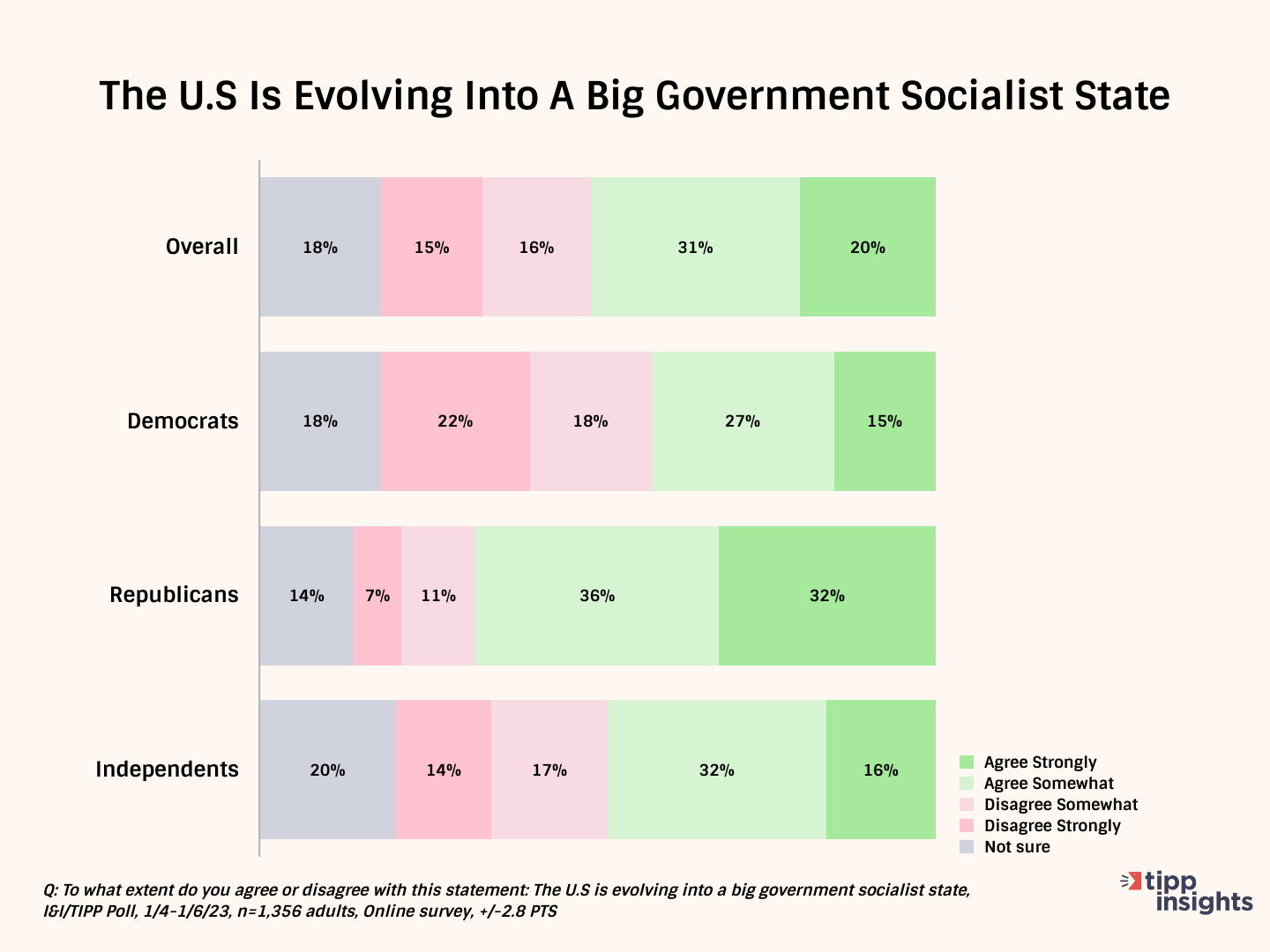
We asked two other related questions, one about spending, the other about direct government control of key sectors of the economy. Poll participants were to indicate whether they agreed or disagreed with a statement: “I am willing to pay higher taxes to support more social programs.”
Again, the gap was large. Among those answering, 57% said they weren’t willing to pay higher taxes for more social programs, while just 34% said they were.
This time, however, politics mattered. For Democrats, 52% said they’d willingly pay higher taxes for more social spending, while 39% said they wouldn’t.
Republicans differed starkly, with only 16% saying they’d pay more in taxes for higher social spending, while a hefty 78% said they wouldn’t. Self-described independents were closer to Republicans, with 27% supporting higher social spending, versus 62% who didn’t.
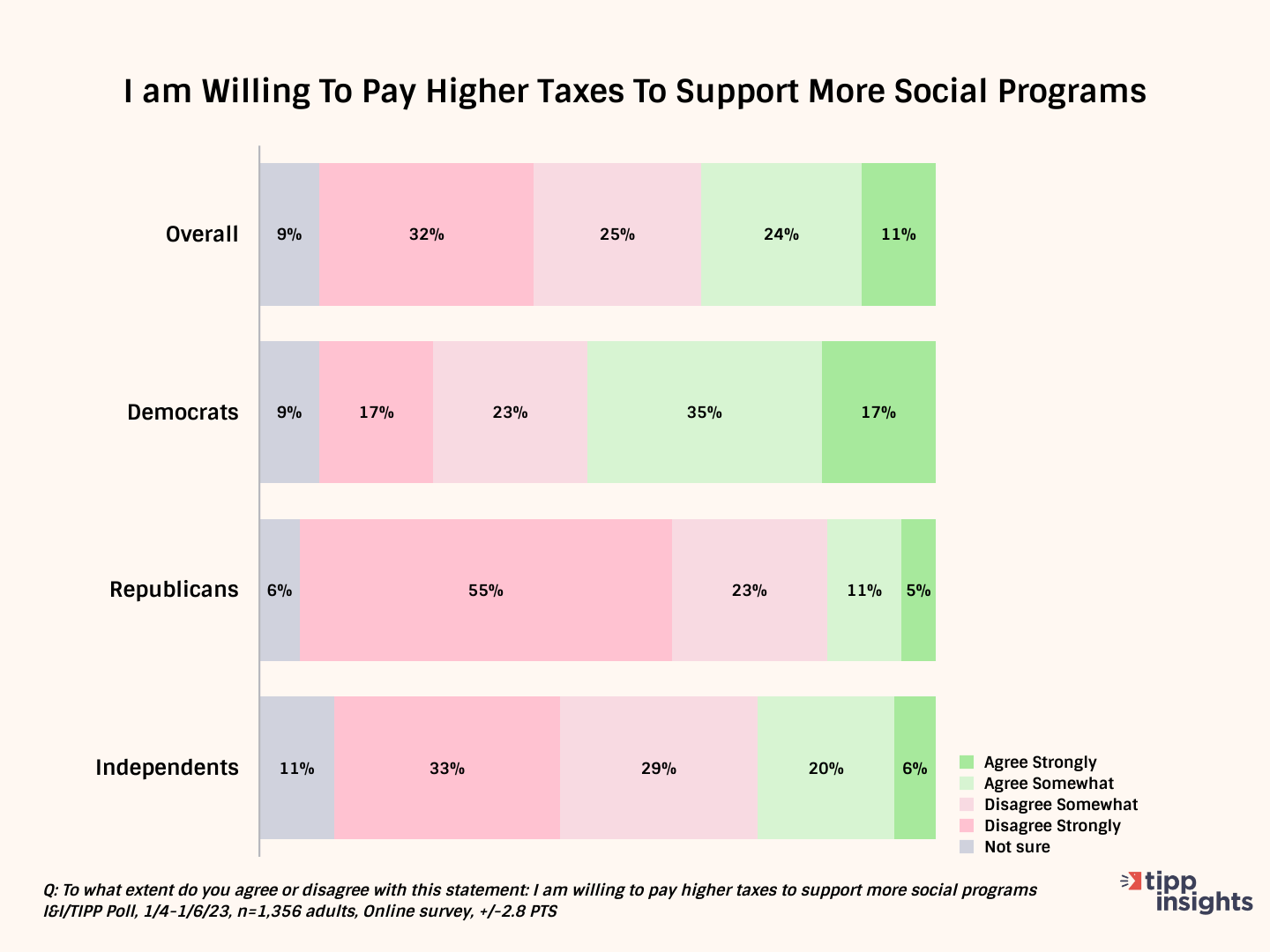
A third, and final, question was asked: Did respondents agree or disagree that “the government should control or own key industries such as health care and energy.”
Here, the margin was narrower, with 39% of all respondents saying they would support such a move, while 46% said they would not. “Not sure” made up 14% of the responses.
Once more, the political split was wide, with 55% of Democrats supporting vs. 30% opposing, compared to 26% of GOP followers supporting the takeover of major industries, compared to 64% opposing it. Independents expressed 32% support, vs. 53% opposition.
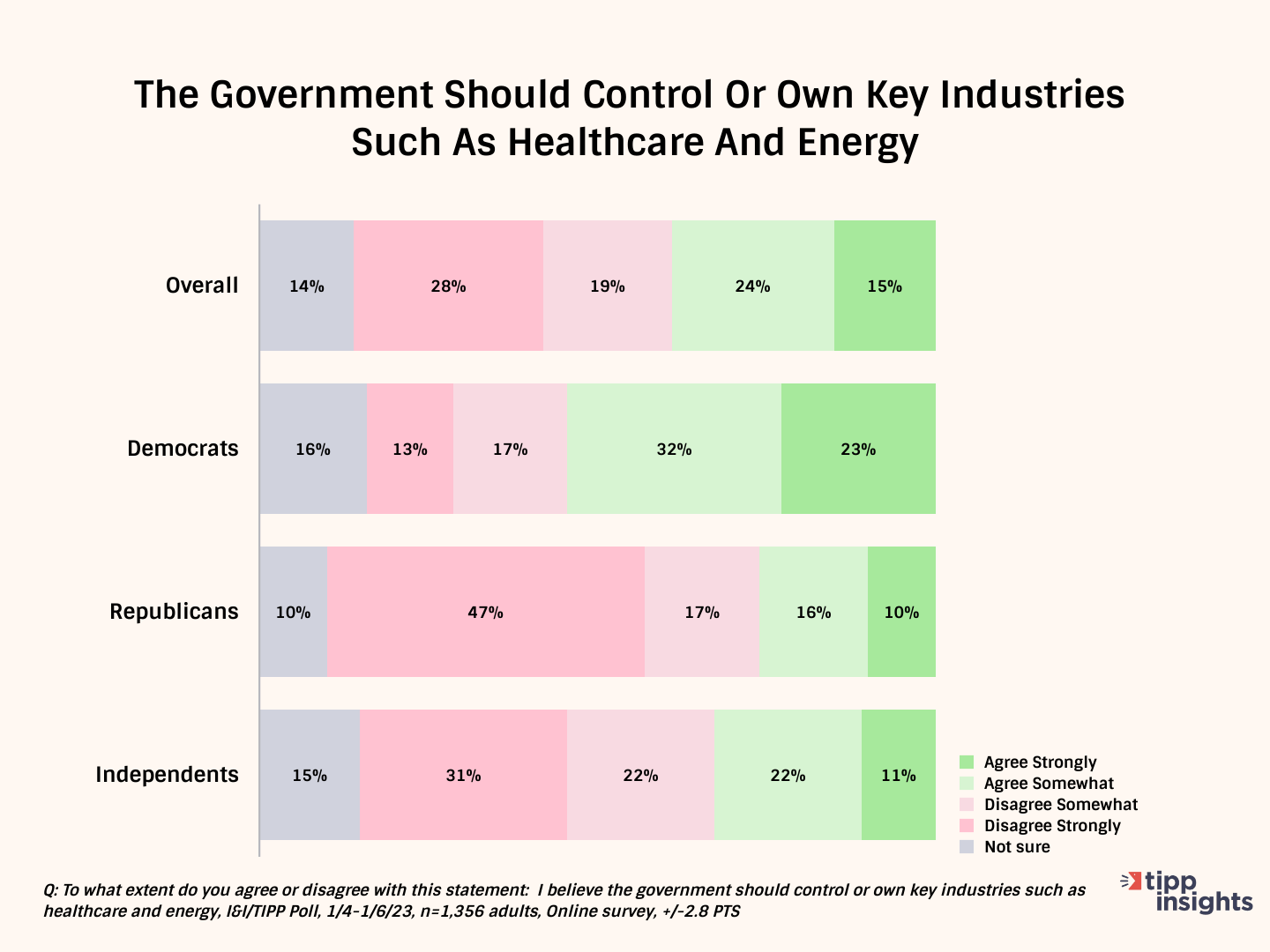
What to make of all these data?
For one, even as government’s size, tax-take and power over the private economy have expanded, Democrats mostly don’t see America moving toward socialism. Americans of other political persuasions mostly do.
For another, Democrats are far more likely to support both higher taxes for social spending and the takeover of key industries. Once again, Republicans and independents aren’t.
In short, while Democrats are less likely to see the U.S. evolving into a socialist state, they support higher taxes for “social programs” and the takeover of major parts of the economy, both hallmarks of socialist economics.
This is likely to form the basis of future bitter policy disputes between the White House and the major parties in Congress.
Consider just the two industries mentioned in the I&I/TIPP poll: health care and energy. Together, they account for roughly 25% of all U.S. GDP. A government takeover would essentially push total state and federal government control to well over half of the entire economy.
President Bill Clinton in 1996 pledged, “the era of big government is over.” But is big government now making a comeback? To many, it sure feels that way, as our poll shows.
A few recent examples illustrate the trend:
- The Biden administration’s abandoned plan to “ban” gas stoves is the latest in a series of moves to re-regulate the U.S. economy, using the supposed negative future impacts of “climate change” as grounds for action.
- At the state level, just this month a ban on some 200,000 buses, big-rig trucks and tractor-trailers took effect in California. This will have a far-reaching impact on the nation’s economy, as the movement of millions of goods that once passed freely through California’s largest-in-the-country ports will slow further. Prices will rise, and so will shortages.
- Across the country, state governments are mandating costly solar and wind power projects to replace more reliable and cheaper coal, natural gas and nuclear energy. For most Americans, the future will be filled with electricity shortages and brownouts.
Americans, as I&I/TIPP Poll data show, are less than keen on paying taxes to fund more social programs. And yet, with little fanfare, some $219 billion in new taxes went into effect on Jan.1, before the new Congress could take over.
Such moves are sure to set off yet another stormy debate in Congress (not to mention among the public), over the degree of government control over Americans’ lives.
I&I/TIPP publishes timely, unique and informative data each month on topics of public interest. TIPP reputation for polling excellence comes from being the most accurate pollster for the past five presidential elections.
Terry Jones is an editor of Issues & Insights. His four decades of journalism experience include serving as national issues editor, economics editor, and editorial page editor for Investor’s Business Daily.
Hey, want to dig deeper? Download data from our store for free!
Please email editor-tippinsights@technometrica.com

